John Fithian, President and CEO of National Association Theatre Owners, declared that 2015 would “rock” because it would be the year of women in film. “We have so much more to come, with big female roles in horror, comedy, science-fiction, animation, family, western, thriller and action.” Fithian said. However, he doesn’t address specific representations of women or the types of roles that will have an impact on viewers.
“Hey, we have more women in leading roles so we’re in the good books now” isn’t enough. There are issues such as race that need to be addressed because so far the female leading roles are mainly white and it’s usually one woman who has the main role unless it’s a chick flick. Additionally Carey Mulligan has said: “In terms of the amount of interesting roles there are for women, it’s obviously massively sexist…There’s a lack of material for women. A lack of great stories for women.”
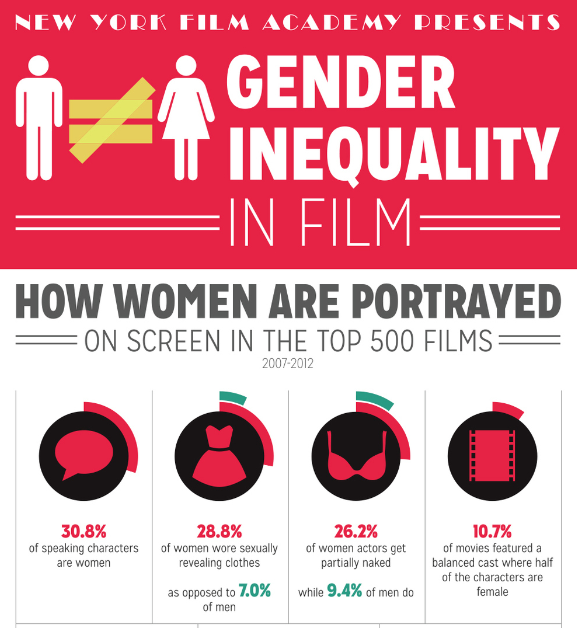
Is the “strong woman” ideal still working? Different interpretations have led to different types of strong women and yet it’s not enough to overcome sexism. The term “strong female character” also has confused and frustrated people – is it about well-written female characters or female characters who are physically strong or emotionally strong?
“Strong female character” implies that women are generally weak and men are in general strong (you never hear “strong male character”), according to blogger Annie Neugebauer who opposes the term. “Strong” is often associated with masculinity and those characters who physically fight are seen as masculine while dismissing ultra-feminine ones.
It seems that the “strong woman” trope is subjective and to some, it’s another form of sexism and simply an archetype. A strong female character doesn’t portray a real person. Women who aren’t strong are apparently not interesting or worth watching.
After a line of female-led films that feature strong women, there seems to be a number of films rejecting the concept or they think that they’re portraying strong female characters; “weak” means strong too – flawed characters is a good thing depending on how they’re written. The recent Cinderella depicts a submissive and dependent Cinderella in contrast to Drew Barrymore’s portrayal and even the Disney princesses who are assertive and challenge social norms. There have been debates on both sides, from viewers to the cast, on the latest Cinderella.
Some have said that in reality, a person in Cinderella’s situation wouldn’t be able to fight back out of fear of punishment – interesting since her situation is glossed over by costumes, her being swept off her feet and…magic; there isn’t a serious moment regarding the situation. Others have said that Cinderella is strong. She endures the cruelty of her family and doesn’t change in order to fight back. Director Kenneth Branagh asserted that she’s “not being a passive victim, someone waiting for a man to rescue her.”
But she does turn out that way. She endures her terrible situation until someone saves her and she seems to be stuck in a fantasy world of her own, not really facing reality. Is that inspiring or strong? In some ways, yes but it’s more on the lines of submission and plain escapism. And if anything, Cinderella is unrealistic and sends a sexist message about women. However, according to Dr Rosie Campbell, this might encourage women to fight against tropes.
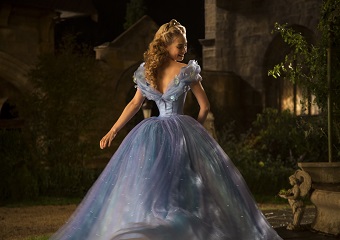
I’ve noticed that romance seems to be a common weakness for many strong female characters, especially those who are the only women in the story and/or fall for the (growingly typical) male hero’s tragic history which serves as a justification for his treatment on women. Thus the woman lets her good senses down and submits to his “manpain”. I’m not only talking about women who are insensitive until they fall in love but also women who throw away their agency and “loose” women who become or train themselves to be “ladylike” because of a man.
When was the last time you saw a female character with no romantic relationships attached?
Several stories that are supposed to be about women or female empowerment usually end up portraying supporting female characters as potential rivals and focusing on the male character more than the female protagonist whose backstory is often in shadows compared to the male’s. Why?
Outlander is becoming an example of this after the notorious “spanking” scene which is not really a spanking scene but depicts spousal abuse; the majority of the audience didn’t criticise (because the guy’s hot and apologises? Hmm). I hope it will stay focus on the female lead and not strip away the things that make her strong just for the sake of the male character; we don’t know much about her either.
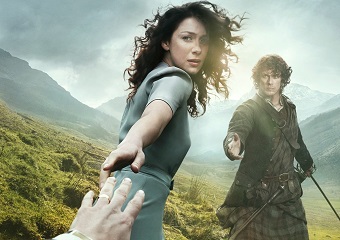
Furthermore, there are many scenes of rape attempts and instances of slut-shaming in Outlander that make you question about the show’s supposedly feminist stance on women. Yes, it’s set in a time when women didn’t have rights and subjected to men’s desires. It’s historical. But time travel is also a part of the Outlander world and the main character is a modern woman, not that different from her 21st century counterparts…
Among abuse, rape has become a device for “character development” and something that’s associated with women in several works such as Reign and even Game of Thrones’ Cersei, one of the most powerful characters, experiences rape. From one point of view, it’s a way to portray them as real people who experience bad things, but from another, it comes across as misogynistic and women are the only victims of the crime? Rape or abuse is the effective way to make women real or strong?
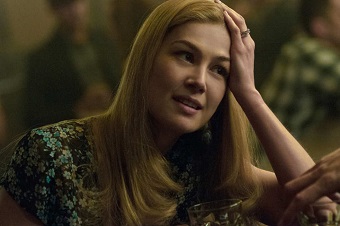
It appears difficult to create strong women. There are exceptions such as Jane Eyre or Merida or the cleverly ambiguous Amy Elliot Dunne whose portrayal is torn between misogynistic and pro-feminist or both. But there are strong female characters who drive the story at the start but end up taking the backseat and let men do their job instead. And there are those who are described as strong but just added to the story because it needs female presence and they don’t contribute to anything other than being a love interest or an object that motivates a male character.
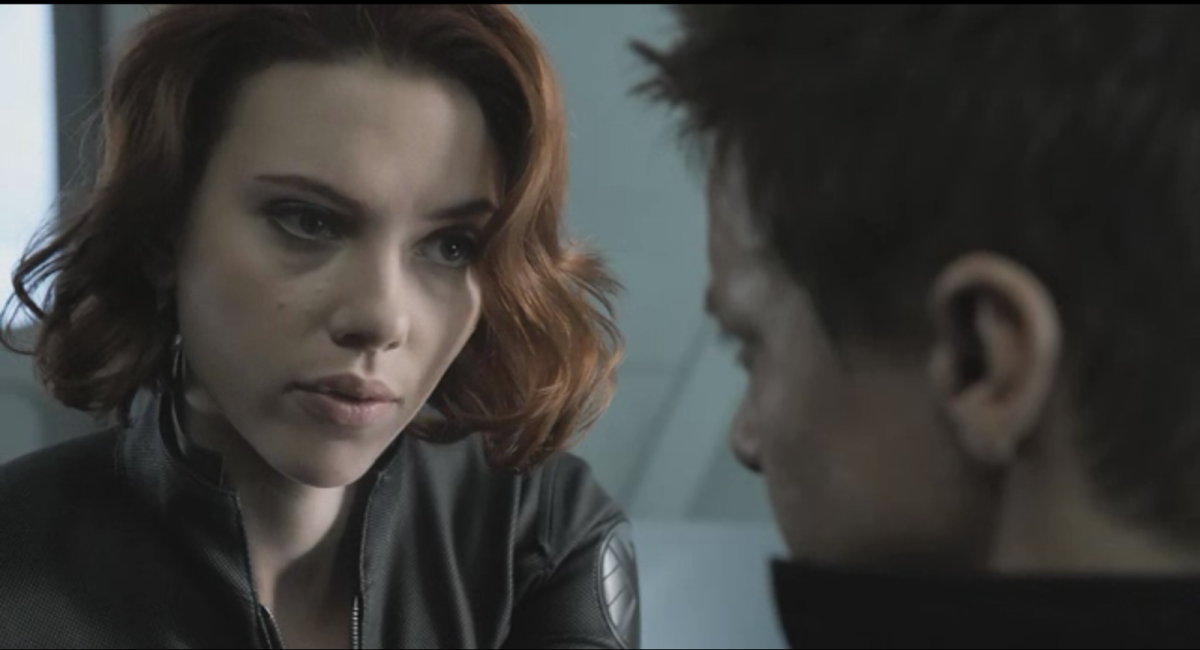
Cast members of The Avengers Jeremy Renner and Chris Evans recently caused controversy over Natasha Romanoff/Black Widow, the only main female character in the film, whom they jokingly called a “whore” and “slut” for being connected to several men. Despite being a strong character and actually having a romantic connection to one person. Even though it was a joke, their use of words indicates how women are represented and defined by men when it comes to relationships regardless of what they’re capable of.
Strong women seem to end up revolving around men and written by men. A lot. Not that written by women makes a difference. Meanwhile male characters can survive without romance and women, and no one criticises them unless they’re not man enough.
The strong woman ideal is still important in film but it’s becoming a cliché and confusing. They should be well-written and realistic, not relying on tropes. Another thing would be to have more than the usual one or two female characters as it would bring a diverse range of women. Instead of burdening the one female character with so many dimensions or just one. Note that a lot of strong female characters don’t seem to have girlfriends even if they’re not the only women in the story. Why? Katniss? Ripley? Black Widow? You only have guy friends…is it to make them stand out more?
To conclude this mixed view on strong women, I guess the question is: should we accept films that reject strong women? Accept films that revive traditional views on women or have different takes on strong women? Or should we drop the term “strong women” because of its ambiguity and implications on people based on gender? Instead write well-written characters regardless of gender and strength?







